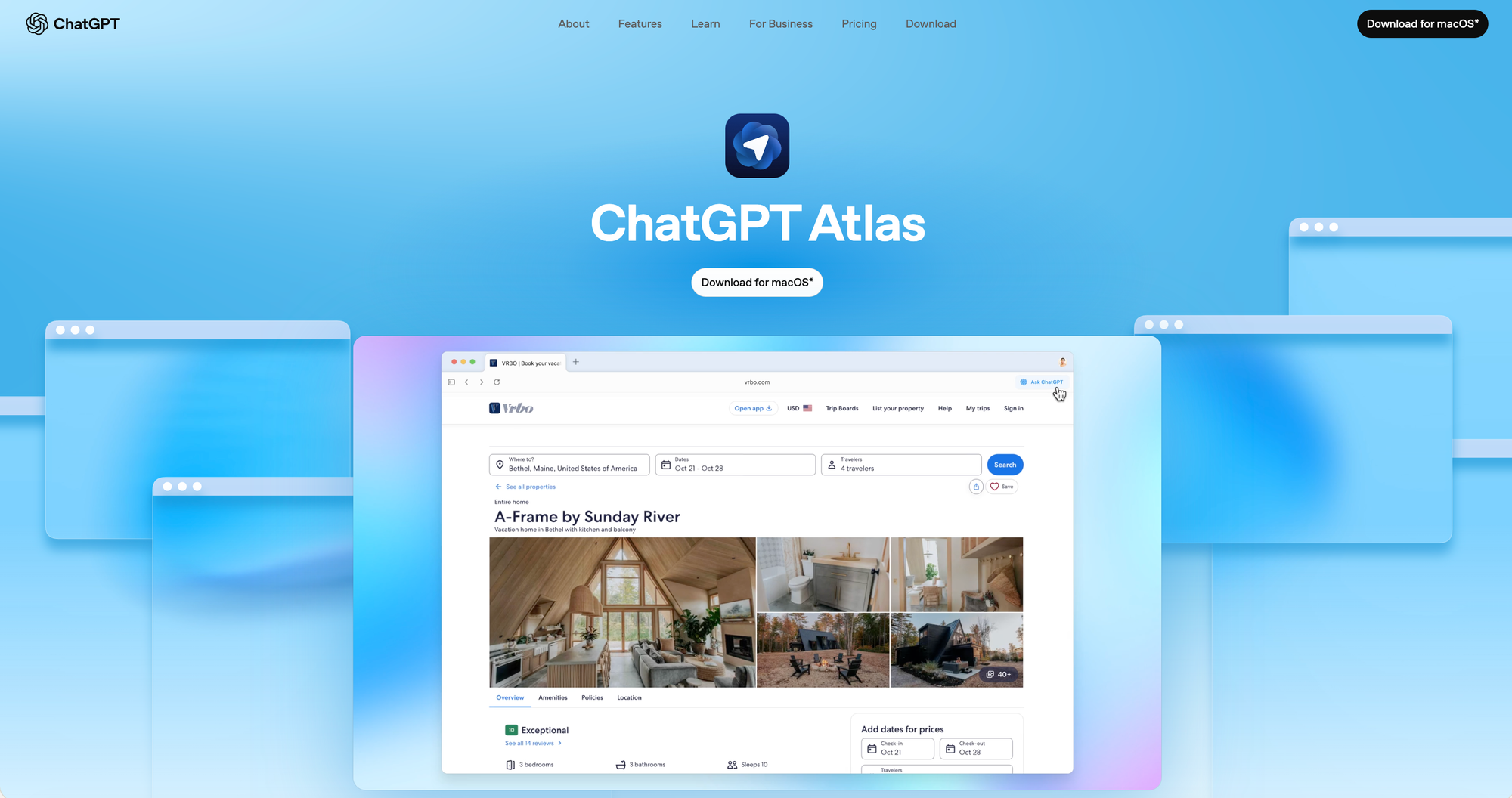
OpenAI launched Atlas. Samsung put Perplexity on living room TVs. Google got caught auto-assigning customer values without asking. And a massive European study confirmed what we've been whispering in Slack channels for months: AI is getting our content wrong nearly half the time.
If you're feeling whiplash, you're paying attention.
The rules we spent years mastering (keyword research, backlink profiles, ranking on page one) are being rewritten in real time by systems that don't care about blue links. And here's the uncomfortable truth: the platforms won't save us. They're building for themselves, not for us.

Google proved that when Pew Research confirmed AI Overviews cut click-through rates in half. Publishers watched traffic crumble while Google celebrated how users "love" getting answers without leaving the results page.
OpenAI proved it by launching a browser where ChatGPT is the interface. No list of links. No publisher revenue. Just AI summaries trained on our content, delivered without attribution or compensation.
The zero-click era isn't coming. It's here. And we're the ones paying for it.
What actually happened over the past few days
Let me break this down without the industry jargon.
OpenAI's Atlas browser went live on Mac, with Windows and mobile coming soon. It's a direct shot at Google Chrome (the browser that funnels 3 billion people into Google's search monopoly.
Except that Atlas doesn't show search results. It shows ChatGPT responses. Your content might inform those responses, but users never visit your site. That's the model.

Meanwhile, Samsung partnered with Perplexity to put AI search on television screens worldwide. Think about that: AI search is now in living rooms. People asking travel questions, looking for restaurant recommendations, finding entertainment options, all through AI, not Google. And definitely not your website.
Then there's the European Broadcasting Union study involving 22 news organizations across 18 countries. They tested ChatGPT, Copilot, Gemini, and Perplexity with over 3,000 queries. The results? Nearly half of all AI responses had significant issues. Thirty-one percent got sourcing wrong. Twenty percent contained factual errors. And Google's Gemini? Seventy-six percent error rate.
Let that sink in. The AI systems millions of people trust for information are wrong, misleading, or poorly sourced 45% of the time.
But they're still winning. Because people don't fact-check AI. They just trust it.
The strategy that dies today
For 20+ years, the playbook was simple: Create great content. Optimize for search.
Rank high. Get traffic. Convert visitors. Build business.
However, search has evolved. And ranking #1 doesn't matter when AI Overviews mean users never click. Traffic numbers don't matter when half your visitors are bots. And keyword rankings definitely don't matter when ChatGPT answers questions without showing anyone your carefully crafted title tag.

That's the new math. You win the visibility game and still lose the business game.
What smart marketers are doing right now
Here's what I'm telling my clients, my coaching students, and everyone building content businesses in 2025:
- Stop optimizing for rankings. Start optimizing for authority. You need to be cited as the definitive source even when nobody clicks through. That means clearer writing, stronger expertise signals, better structured data, and content that AI systems can extract and attribute accurately. Schema markup isn't optional anymore. The September 2025 controlled study proved pages with proper schema appear in AI Overviews while identical pages without schema don't.
- Build what you own. Email lists. LinkedIn audiences. YouTube subscribers. Communities. Courses. Memberships. Anything where you control the relationship and don't depend on Google sending you traffic. The businesses surviving this transition are the ones who saw the writing on the wall two years ago and started diversifying.
- Track what actually matters now. Stop obsessing over keyword rankings. Start tracking how often AI platforms cite your content, whether those citations are accurate, domain authority in your topic area, email list growth, community engagement, and direct traffic and brand searches.
- Get your schema markup right. Well-implemented Article schema, FAQ schema, HowTo schema, LocalBusiness schema; these directly influence whether AI systems can understand and cite your content. The data is clear: pages with proper schema get AI visibility. Pages without schema don't get indexed at all.
- Learn semantic SEO. Keyword stuffing is dead. Topic clusters, entity relationships, and semantic relevance are how you build authority that AI systems recognize across Google, ChatGPT, Perplexity, and whatever launches next month. Think topics, not keywords. Think depth, not keyword density.
The opportunity hiding in the chaos
Here's what gives me hope: Many websites still don't use schema markup. Most businesses haven't built email lists worth talking about. The average "content marketing strategy" is still just cranking out blog posts and hoping for Google traffic.
That means the businesses that adapt quickly (the ones implementing schema this week, building owned audiences this month, and shifting to authority-based content this quarter) will win for the next five years.
The lazy content is dying. The AI-generated listicles, the keyword-stuffed garbage, the thin "best of" roundups—Google's next algorithm update will likely kill them. Good. They were cluttering the web anyway.
What survives? Content with real expertise. Writing that actually helps people. Information that AI systems cite because it's trustworthy, clear, and thorough. Brands that built direct relationships so algorithm changes don't bankrupt them.
Do this before next Monday
Pick one action and finish it by next Monday:
Audit your top 10 pages for schema markup.
Fix what's missing. Start tracking AI citations.
Find out where ChatGPT, Perplexity, and Google AI Overviews mention your brand.
Map one topic cluster.
Take your best-performing content and build a thorough topic hub with internal links establishing semantic relationships.
Add 100 email subscribers.
Run a lead magnet, offer a resource, do whatever it takes to start building your list.
Check multi-location SEO. If you have multiple locations, make sure each has unique, localized content and proper LocalBusiness schema.
One action. One week. Real progress.
My friend, the open web isn't dead. But it's definitely not the same web we built careers on. Time to build smarter.


